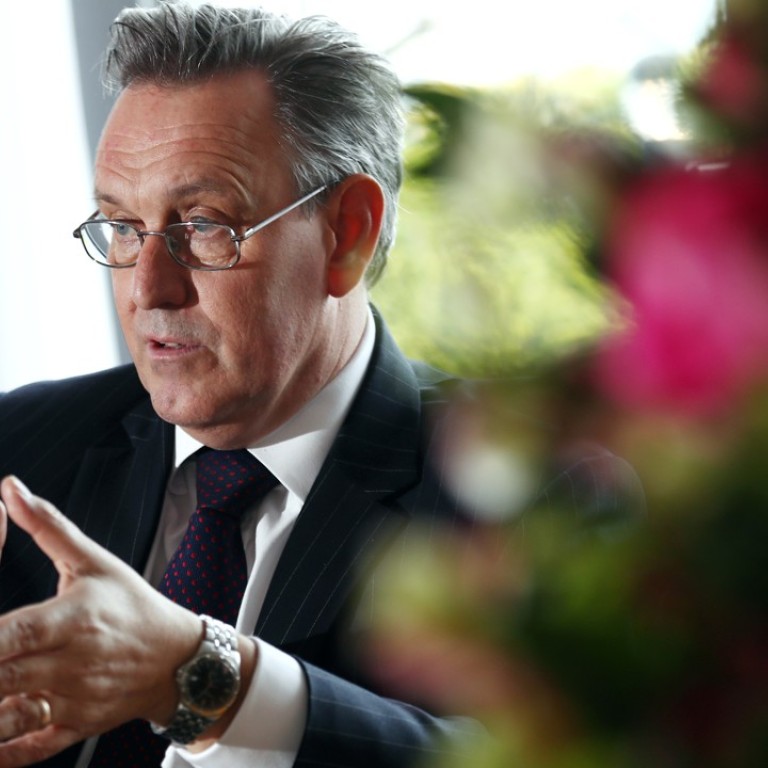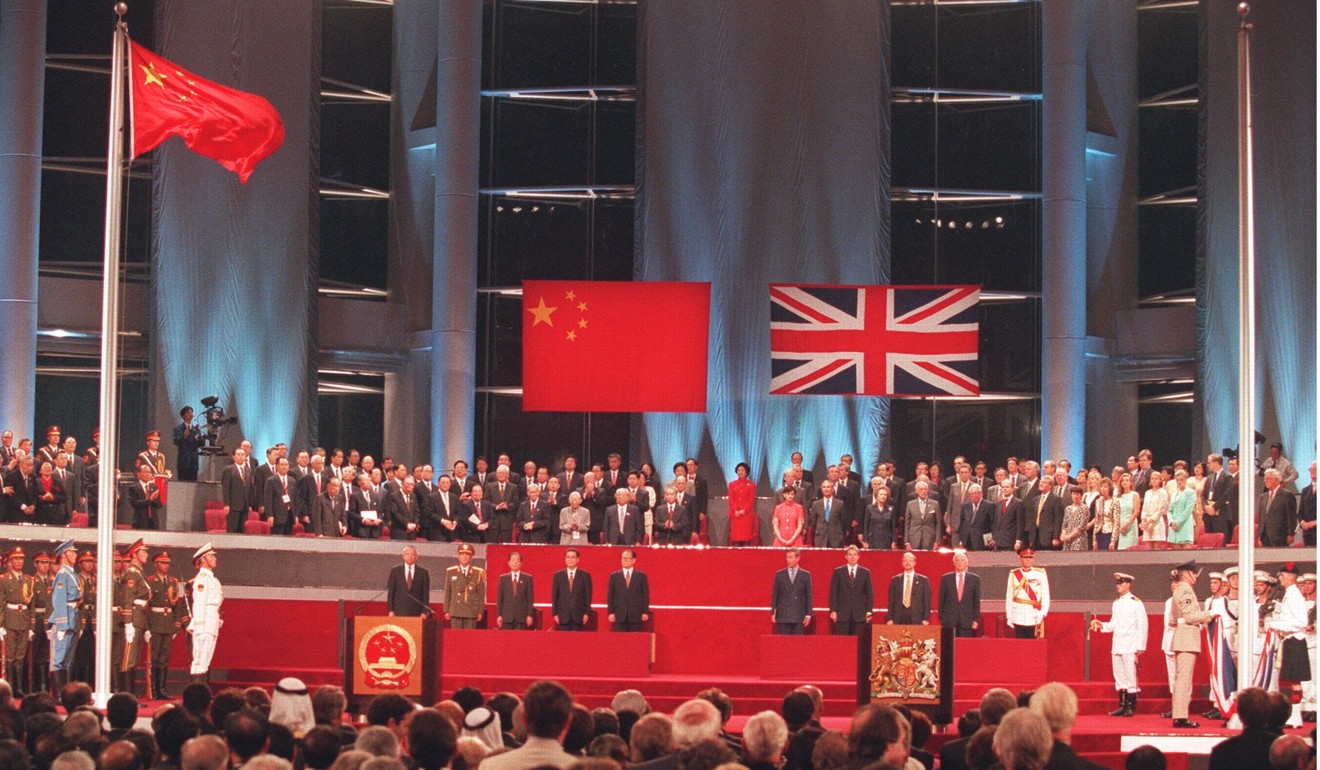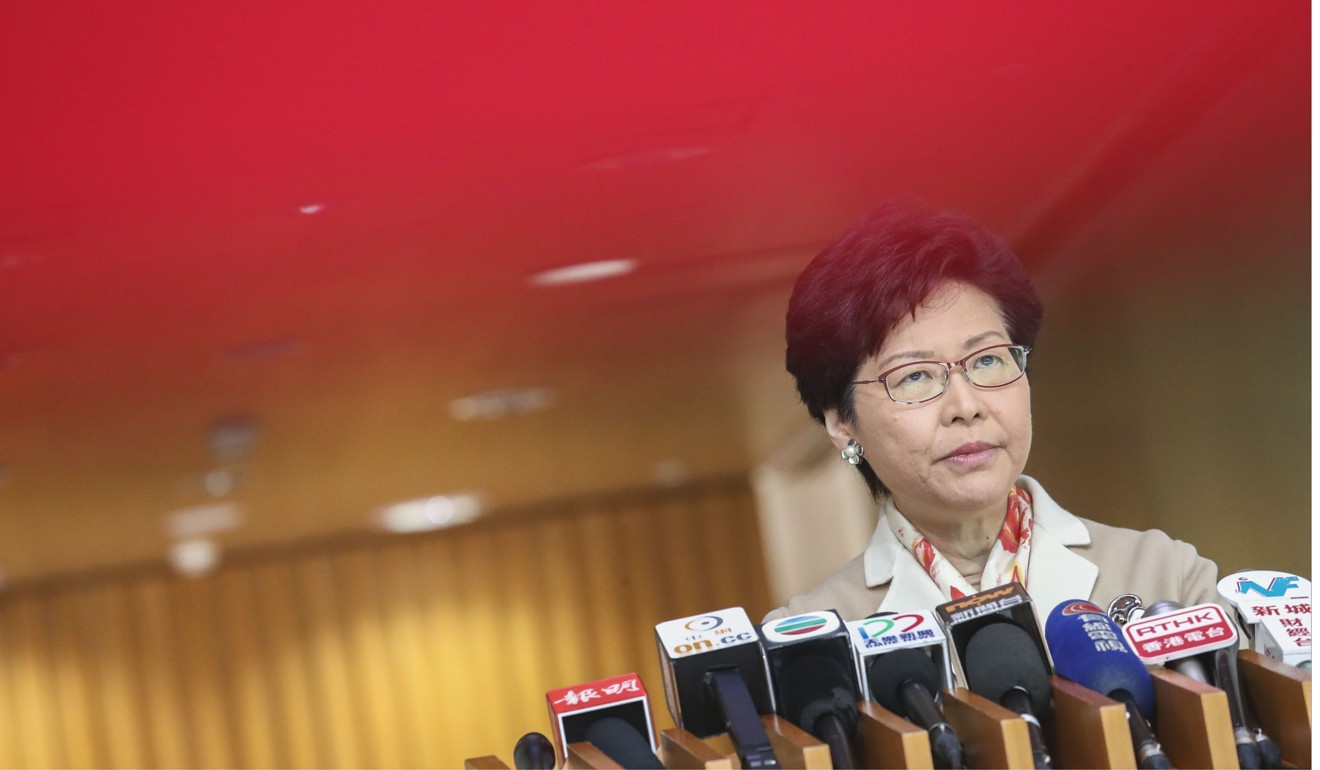
Exclusive | Britain will continue to speak up on Hong Kong and any pressures ‘one, country, two systems’ comes under, consul general vows
Andrew Heyn says British government has an obligation to review the affairs of its former colony
Despite the prospect of criticism, Britain will not give up on closely monitoring developments in Hong Kong and speaking up about pressures it feels the “one country, two systems” concept is under, the nation’s consul general in the city says.
Andrew Heyn said the British government had an ongoing obligation to review the affairs of its former colony while not interfering in the city’s governance.
Last week, Hong Kong leader Carrie Lam Cheng Yuet-ngor slammed a British concern group for what she described as “unfair and unfounded” comments in a report on the city’s freedoms and rule of law. Lam criticised Hong Kong Watch for “interfering in Hong Kong’s internal affairs”.
Hong Kong leader Carrie Lam blasts UK group’s ‘unfounded and unfair’ report on city
Heyn responded in a wide-ranging interview with the Post in which he also spoke about Britain’s influence in the world as it prepared to leave the European Union and the country’s growing ties with Hong Kong.
Among other plans, he revealed that Britain had chosen Hong Kong to be the venue this March of its biggest trade event of the year, the GREAT Festival of Innovation, while a “strategic dialogue” between the two governments to reduce trade barriers and develop joint initiatives was ongoing.

On political matters, the consul general, who took up his post in 2016, said Paddy Ashdown, the veteran British politician who compiled the report, was not a member of the country’s government and his findings should be seen in that context.
But Hong Kong, as a global city, must expect people to comment on its developments, and the city’s chief executive was entitled to respond, he added.
Fail mark for Lord Ashdown’s report on Hong Kong
Asked if he was disappointed by Lam’s criticism of the report, Heyn said: “Given that it was addressed to somebody not in government, somebody who was commenting from a position of knowledge of Hong Kong but not super close to it, it’s not for me to get upset about that or not.”
He said: “The chief executive is perfectly entitled to give her view. Paddy Ashdown is entitled to give his. That’s the way it is when you are a global city.”

But the British government continued to have an obligation to monitor developments in Hong Kong under the Joint Declaration, a treaty it signed with China in 1984 to provide for the city’s return in 1997, he added.
“When you have signed up for a treaty like that, the monitoring part is, where you feel that things are going well, you should say so publicly,” Heyn said, adding that the one country, two systems arrangement “has probably worked better than almost anybody could have envisaged”.
UK’s duty to Hong Kong ‘non-negotiable’ in post-Brexit trade talks with China, Paddy Ashdown says
On calls for Hong Kong to be independent, Heyn stressed that Britain’s position was that this would not be realistic or desirable for the city.
“The Joint Declaration says one country. There is no argument about that from anyone in the UK,” he said.
As for two systems, Heyn said “we will do everything we can to support that”.
Britain, in its last six-monthly report on Hong Kong, had “mentioned some of the pressures that we feel one country, two systems is under”.

Asked what action Britain could take if it thought the treaty was not being honoured, Heyn said it had spoken out publicly in the one case in which it felt there had been a breach. This concerned the disappearance of Hong Kong booksellers who later emerged in detention in mainland China.
“Without going into detail about what happens behind the scenes in a case like that, it was an incident where we spoke out and made our views clear. That is one of the tools available. You can speak out publicly or privately. But usually we have found our preference would be to go for private diplomatic means,” he said.
Britain looks to forge closer ties to Hong Kong amid EU exit with biggest innovation festival
The British government expressed concern last year about a refusal to allow British human rights activist Benedict Rogers, founder of Hong Kong Watch, to enter the city, amid suggestions from China’s foreign ministry that he intended to meddle in Hong Kong’s affairs.
Heyn said the two countries had exchanged letters on the matter, but the contents of those letters would remain private.
“We have had a reply as to why, to our letter about the fact that Ben Rogers was refused entry. It lies there at the moment. There has not been a similar problem since. We continue to hope there will not be,” he said.
British activist barred from Hong Kong to start NGO monitoring city
The consul general underlined the importance of Hong Kong’s rule of law and independent judiciary. “At a personal level and government level I don’t think there is any question that the judiciary here remains independent, and it’s so important,” he said.
Heyn added that he had recently spoken to representatives of a company who were complaining about the cost of their office and staff in Hong Kong.
“I said: ‘That’s interesting, so why are you here?’ [They said] ‘Oh, rule of law. We wouldn’t go anywhere else.’ It demonstrates the importance that business people attach to the rule of law.”

